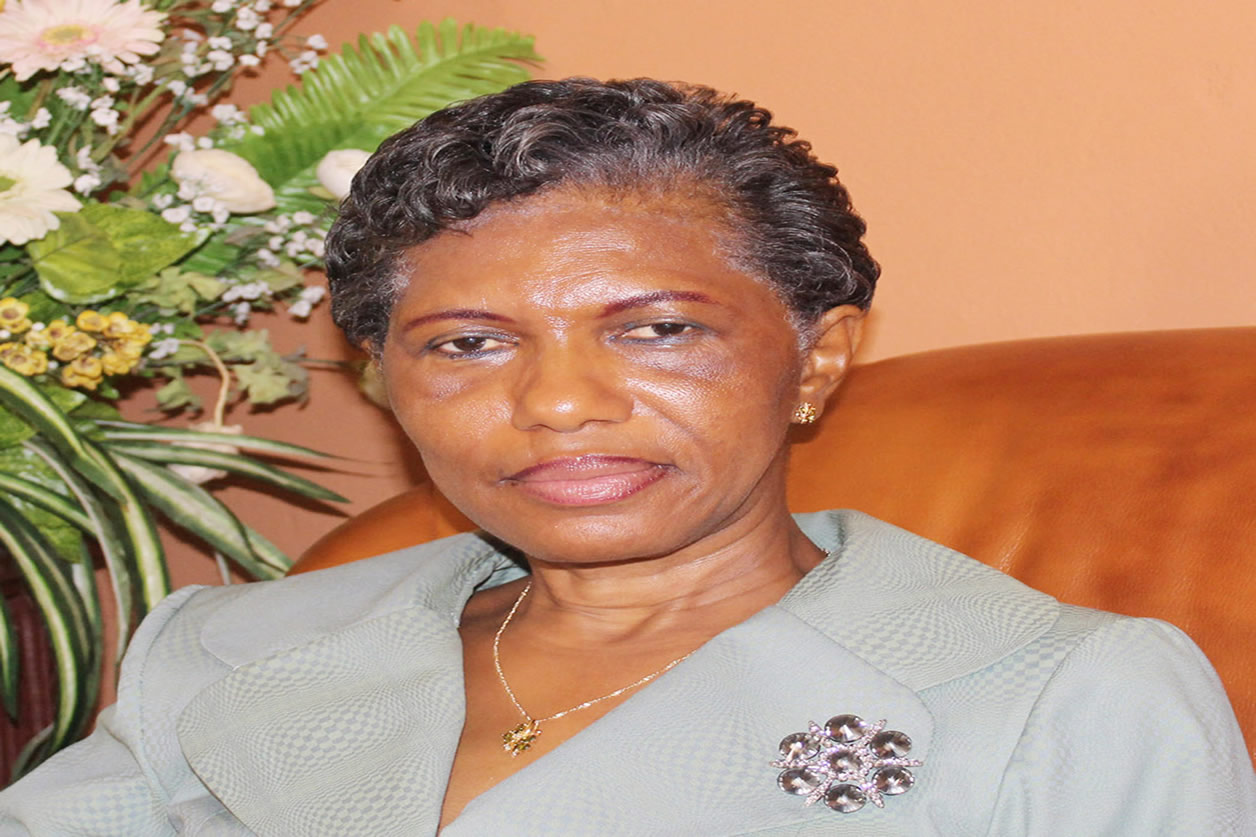
Chargement en cours, veuillez patienter ...

Actualité mise à jour le
-Publié initialement le 08 Avril 2019


Mrs. MARIE MADELEINE NGA, Co-ordinator of the National Community-driven Development Program (PNDP), expresses herself through the 369th issue of âDéfis Actuelsâ (Current Challenges).
As a firebrand
woman and a role model in terms of womenâs promotion/empowerment in the
administration, this civil servant strongly believes that womenâs integration
has registered giant strides as a result of a genuine political willingness.
As a matter of
facts, only very few women succeeded in acceding to decision-making positions in
the public service just a few years ago. According to you, what is the current
situation of women as far as public service is concerned?
First of all,
allow me to thank you for having thought of my modest person so that we
exchange, together, our views on the current situation of women in the
Cameroonian administration against the backdrop of the celebration of the International
Womenâs Day. As to the question, you have just asked, permit me to make a
difference between two types of public administrations, namely: the municipal administration
to which I am so close and interact on a daily basis, on the one hand, and the
central administration, on the other hand. With regard to the first case, it is
worth mentioning that two (02) regions out of ten (10) in our country are yet
to be provided with women mayors. By contrast, the eight (08) other regions
rightly showcase the vitality associated with the presence of competent, politically
committed and visionary women at the helm of our municipalities. In this
connection, one can rightly hail the remarkable rise of Mrs. KETCHA Courtès Célestine who left indelible footprints in her
capacity as the Mayor of Bangangté and who, as a result of the confidence
bestowed on her by the Head of State, H.E. Paul Biya, was recently appointed
Minister of Housing and Urban Affairs during the last Government reshuffle of
January 2019. In the same vein, I should equally salute the selection of the
Council of Angossas which is headed by Mrs.
TITSOL Anne Marie in her capacity as the Mayor of the said locality; it
worth noting that the said council was awarded the best prize in terms of local
governance in the East Region under the 2018âs Performance Desk.
As to the
central administration, I urge you to consider the number and quality of women
appointed Secretaries-General of ministries, knowing pertinently that a Secretary-general
is the administrative boss of a ministry. I do not count the number of directors
in the central administration as well as that of women holding the positions of
General Managers at the helm of State corporations such as: SNI, API, SRC,
Sopecam, BC-PME, Bucrep, Mipromalo, Camtel, CSPH and CCAA., to name but a few.. To
that number, one could also add the list of women appointed as co-ordinators of
projects and programs implemented in our country. Furthermore, it should be
underscored that women have been witnessing an unprecedented leapfrog as Senior
Divisional Officers in the divisions of Koung-Khi and MVILA, respectively. Women
equally hold decision-making positions such as colonels in the army and chief
superintendents in the police administration. Women are increasingly represented
in the university administration. If you were to add all these achievements to
the efforts geared towards attaining men and women equality/parity in the
Parliament and Municipal Councils, you may have a glimpse of what has been done
so far; which undoubtedly means that the future bodes well as far as women
empowerment/promotion is concerned.
But, despite
such great strides registered in the Cameroonian administration, donât you have
the impression that the Cameroonian administration continues to be largely
dominated by men?
It would be unfair
to hold such a point of view! As a matter of fact, an emphasis should be laid
on the preceding situation whereby women did not have any say at all, especially
in the 1960s, in order to fully apprehend the current situation. It is worth
mentioning that significant strides have been registered, especially when one
refers to the analysis of statistical data carried out in 2019. Such efforts undoubtedly
derive from the Governmentâs choice which, in its turn, stems from the Head of
Stateâs strong resolve to empower the Cameroonian women in various areas such
as the Army and Police, to name but a few. That notwithstanding, it is obvious
that a lot still remains to be done.
What
impediments, according to you, hamper womenâs promotion in the administration?
Certain socio-cultural
specificities likely to be considered as major impediments could explain the
prevailing state of affairs. For instance, I can cite some regions in which the
weight of our customs and traditions is such that women are automatically
relegated to back-office duties, whereas front-office duties are exclusively
earmarked for men. Similarly, one may put forward the ugly situation faced by
girl children both in rural and urban areas. More specifically, such girls
hardly go through their studies, inasmuch as some handicaps such as early
and/or unwanted marriages as well as other negative factors largely prevent
them from furthering their school and
academic careers, thereby strongly compromising their future.
How do you
explain the fact that women seldom hold top-ranking or sovereign positions in
the government?
I do hope that I
share with you the same understanding of what you rightly term top-ranking or
sovereign positions. Even though the general feeling holds that there has been
an imbalance/inequality in the composition of the various governments since 1971,
especially with the appointment into the government of Mrs. de Delphine Tsanga as Deputy-Minister in charge of Public
Health and Population, it is worth mentioning the great strides recorded during
the last decades. For instance, Mrs. Dorothy
Njeuma was appointed vice-Minister of National Education in 1975. The
appointment, in 1983, of Mrs. Elisabeth
Tankeu as vice-Minister of the Plan
and Industry marked a turning point in the history of our country, inasmuch as
she became the full-fledged Minister of the Plan and Regional Development as
from 1988. Since then, the number of ladies such as Yaou Aïssatou, Rose Zang
Nguele, Isabelle Bassong and Catherine Eko Ngomba who paved the way
for other women ministers, kept on increasing in other sectors.
However, the
focus on some sector-based regalian ministries such as Justice, Defense, External
Relations, Territorial Administration, should not be overlooked, thereby preventing
one from watering down the significant leapfrogs recorded in our country as far
as the management of decidion-making positions is concerned. Let me once again
refresh your memory on the fact that it is a woman who is at the helm of the
highly sensitive Ministry in charge of the Supreme State Audit. In the same
vein, the issue of cyber-criminality which is currently considered as one of
the major worldwide challenges, and even a sovereign area, is placed under the
emblematic authority of Mrs. Minette
Libom Li Likeng.
Do you think
your career may serve as an example to women who have been yearning for holding
decision-making positions?
Yes, I do
modestly believe that the career that was mine at the public service and at the
helm of the Program may rightly be considered as a source of inspiration to
other young women who have been yearning for working in the public service and
in the private sector in general, and to those who expect to hold executive
positions in particular. There are two reasons for that. The first one stems
from the fact that it is possible, through hard work, to enjoy the renewed confidence
and/or trust bestowed on a worker by his/her hierarchy; the second one lies in
the fact that it is possible to transmit the precious values one has been
advocating for to those who are accountable to us. As far as I am concerned,
such values should refer to: performance, respect for hierarchy or subordination,
good governance and ethics, faithfulness or loyalty, team spirit and fear of
God.